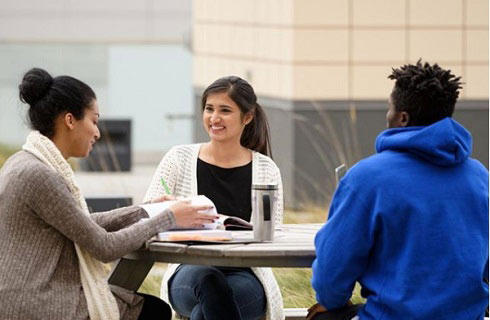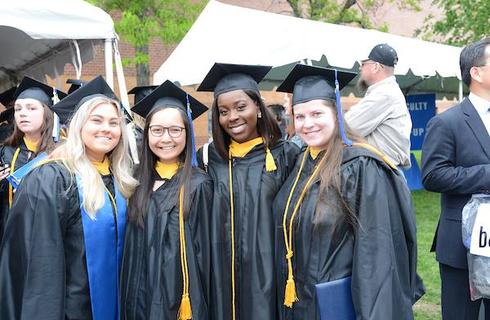- IDP China>
- 课程库>
- 人文科学>
- 语言、文学和语言学>
- 外国语言和文学概述 >
- Honours Bachelor of Arts in Literature and Critical Theory (Cultural Theory) - St. George
荣誉文学学士学位和批判理论(文化理论)
Honours Bachelor of Arts in Literature and Critical Theory (Cultural Theory) - St. George

学历文凭
Bachelor Degree with Honours

专业院系
Literature and Critical Theory

开学时间

课程时长

课程学费

国际学生入学条件
IDP—雅思考试联合主办方

雅思考试总分
6.5
- 雅思总分:6.5
- 托福网考总分:89
- 托福笔试总分:160
- 其他语言考试:Pearson Test of English (PTE) Academic - Overall score of 65 with no part below 60.
CRICOS代码:
申请截止日期: 请与IDP联系 以获取详细信息。
课程简介
Victoria College (Vic) is committed to providing students with a personal and inclusive university experience inside and outside the classroom. This is an environment where students and faculty are engaged in building a community that welcomes diversity, embraces creativity, and is energized by challenge. At Vic, we nurture a close-knit learning environment from the very beginning of your academic career. Our distinctive first-year offerings include the award-winning Vic One program and the Vic One Hundred series of first-year foundations seminars. Every first-year Victoria College student takes at least one small seminar course. You will experience here the academic advantages of being a student at one of Canada’s leading research universities combined with the intimacy of a small liberal arts college.The Literature and Critical Theory program will attract students who are interested in exploring and generating links between literature and historical, cultural, political, social, and psychological forces. The program trains students to think about how problems of the present are tied to those of the past, and to consider critically how we both represent this past and imagine possible futures. Students will be engaged in the practice of close, contextualized analyses of literary texts and other discursive forms, including artefacts, institutions and social practices, originating in different languages, geographical locations, and historical periods. Literary production, like all forms of cultural production, invariably exceeds the boundaries of the nation, and increasingly so in today’s globalized world. The boundaries between various cultural media are similarly porous, and the aesthetic values by which we identify, judge, and classify literary and cultural objects are historically shaped. For these reasons, students will be encouraged to study in more than one language and to work with a variety of media. Our courses explore literary and cultural movements across languages, geographical regions, epochs, media, and disciplines.
相关申请
 预科
预科 奖学金
奖学金 实习机会
实习机会 在校学习
在校学习 跨境学习
跨境学习 校园授课-线上开始
校园授课-线上开始 在线/远程学习
在线/远程学习
开学时间&学费
学费信息仅供参考,请与IDP联系以获取详细信息
| 开学时间 | 时长 | 学费 | 地点 |
|---|
学校排名

世界排名21
数据源:
泰晤士高等教育世界大学排名
关于多伦多大学

多伦多大学(University of Toronto),始建于1827年,坐落在加拿大的第一大城市多伦多,是加拿大的一所顶尖学府,亦为加拿大传统四大校之一。安大略省政府及议会环绕在市中心的女王公园四周,现已发展成为一所“一主两翼”格局的世界知名研究性大学--坐落于市中心的圣乔治校区(St. George),历史最为悠久,与3个更小的大学联盟并有享有七大学院制,与十座教学医院有着密切关系;东西向延伸至世嘉堡与密西沙加,UTSC有着乡村般的风光,风景别致,搭乘TTC一小时路程;UTM则是在西边,有校车往返。在学术及研究方面,多伦多大学一直处于领先地位。其经费、捐款、国家教授奖项、研究出版规模和藏书量皆为加拿大之首。多伦多大学出版社在加拿大乃至全北美影响深远。实行独立书院制的学府,荣获诺贝尔奖的教授人数是加拿大最多的。维多利亚学院是其最富有的学院之一 提供更多奖学金和相关设施。多伦多大学亦为美国大学协会中仅有的两所非美国学府之一。多伦多大学每年发表的科研论文数量在北美仅次于哈佛大学,引用数量位居世界前五。主要贡献:干细胞及胰岛素的发现,电子起搏器、多点触摸技术、电子显微镜、抗荷服的发明和发展,NP完全理论,以及发现首个经核证的黑洞。
本校相关课程
其他相关课程

法语作为第二语言的文学士学位(3年)
 劳伦森大学
劳伦森大学学历文凭
Bachelor Degree
开学日期
课程费用总额

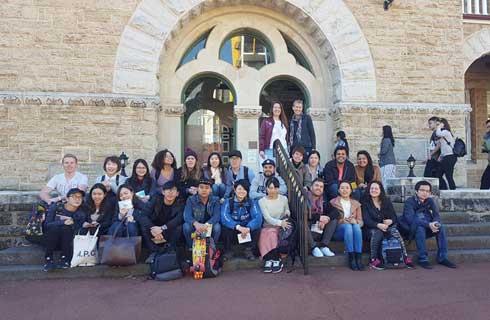
比较文学与艺术研究硕士(MRP)
 布鲁克大学
布鲁克大学学历文凭
Masters Degree
开学日期
课程费用总额


应用语言学文学士/作为后继语言的英语教学(荣誉)
 布鲁克大学
布鲁克大学学历文凭
Bachelor Degree with Honours
开学日期
课程费用总额

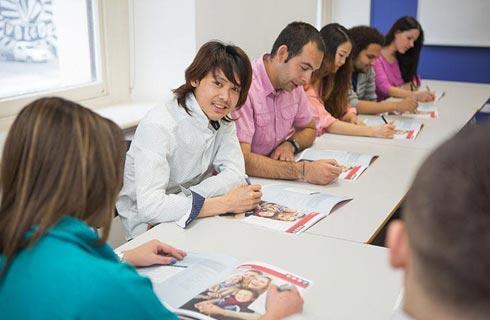
语言文学士学位
 劳瑞尔大学
劳瑞尔大学泰晤士高等教育世界大学排名:1491
学历文凭
Bachelor Degree
开学日期
课程费用总额


翻译研究哲学博士
 渥太华大学
渥太华大学泰晤士高等教育世界大学排名:188
学历文凭
Ph.D.
开学日期
课程费用总额

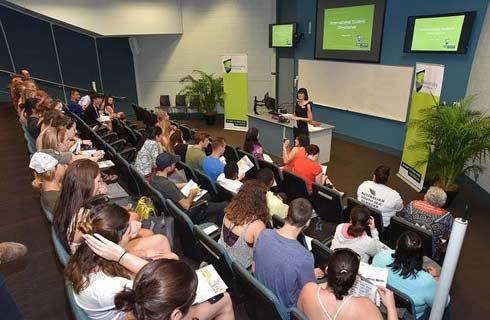
国际研究和现代语言(荣誉)社会科学学士学位
 渥太华大学
渥太华大学泰晤士高等教育世界大学排名:188
学历文凭
Bachelor Degree with Honours
开学日期
课程费用总额














